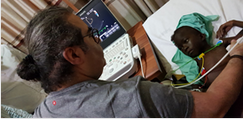HVD Day Awareness
History
 | ||
 |  |  |
>40% of heart murmurs detected with a stethoscope and sometimes the first sign of Heart Valve Disease are missed by GPs Griley 2006
Do you have a history of recurrent sore throat?
--------------------------------------------------------------------------------------
Find a doctor to listen your heart regularly
--------------------------------------------------------------------------------------
Find a Cardiologist to perform imaging of your heart (echocardiography) regularly to examine the structure and function of your heart valve
Heart Valve Disease Awareness Day
Join the Campaign: Spread the word and raise awareness
--------------------------------------------------------------------------------------
Heart Valve Disease (HVD) can be Serious, Disabling and Deadly!
--------------------------------------------------------------------------------------
Burden of Heart Valve Disease
--------------------------------------------------------------------------------------
Heart Valve Disease (HVD) can be present at birth (Congenital) or develop (acquired) from damage caused by streptococcal sore throat infection (rheumatic fever) or blood-borne bacterial infection (endocarditis), early or later in life from other cardiovascular diseases, conditions and calcification.
--------------------------------------------------------------------------------------
The heart has four valves. Each of the four valves can be diseased causing regurgitation (leaking) or stenosis (tight), sometimes two or more valves are involved, although the aortic and mitral valves are most likely to be damaged.
--------------------------------------------------------------------------------------
The damaged valve disrupts blood flow by not opening or closing properly.
--------------------------------------------------------------------------------------
You have a Heart Valve Regurgitation when your heart valve does not fully close and allows blood to leak backwards.
--------------------------------------------------------------------------------------
It is also commonly called valve regurge, or a leaky valve.
--------------------------------------------------------------------------------------
Valve stenosis is when the heart valve does not fully open to allow enough blood to flow through. It is also commonly called a sticky, narrowed, stenotic, or stiff valve.
--------------------------------------------------------------------------------------
Heart Valve Disease (HVD) may involve damage of one or more of the heart’s four valves.
--------------------------------------------------------------------------------------
This can reduce the blood and oxygen supply to the body and lead to major complications leading to weakness of the heart muscles, enlargement, arrhythmia, and pump failure– including death
--------------------------------------------------------------------------------------
For patients with severe aortic stenosis, their survival rate is as low as 50% at 2 years after the onset of symptoms and 20% at 5 years.
--------------------------------------------------------------------------------------
The good news is that , valve disease can be successfully treated with valve repair and replacement in patients of all ages.
--------------------------------------------------------------------------------------
Advanced age is the greatest risk factor with 1 in 10 people ages 75 and older estimated to have moderate to severe heart valve disease (HVD).
--------------------------------------------------------------------------------------
However, people with HVD do not always have symptoms, even if their structural valve disease is advanced or severe.
--------------------------------------------------------------------------------------
For these people, a heart murmur which can be detected by a stethoscope and confirmed by echocardiogram is the most important clue.
--------------------------------------------------------------------------------------
They are NOT a normal sign of aging.
--------------------------------------------------------------------------------------
You should talk to your Healthcare Physician (HCP) if you experience symptoms including fatigue, shortness of breath, weakness or dizziness.
--------------------------------------------------------------------------------------
Your doctor will refer you to a cardiologist for cardiac imaging (echocardiography) to view the structure and function of your heart valves.
--------------------------------------------------------------------------------------
Listen to your body: Learn about symptoms
Know the risk factors for valve disease: Learn about Risk Factors
--------------------------------------------------------------------------------------
Rheumatic heart valve disease
Est. 1.7/1000 school children and students (ca. 20.000) between the age of 9 and 22 years in Ghana suffer from rheumatic heart valve disease.
--------------------------------------------------------------------------------------
Prevalence of RHVD in Sub-Saharan Africa/1000 people
1. Ghana: 1.7
2. South Africa: 20
3. Kenya/Uganda: 27
4. Ethiopia: 30
Est. 0.6 per 100,000 Ghanaians die from rheumatic heart valve disease every year. http://global-disease-burden.healthgrove.com/l/41627/Rheumatic-Heart-Disease-in-Ghana
http://global-disease-burden.healthgrove.com/l/41627/Rheumatic-Heart-Disease-in-Ghana
--------------------------------------------------------------------------------------
Awareness of Rheumatic Heart Valve Disease (Ghana)
1-2 from 10 people have heard of rheumatic heart disease (RHVD).
99 % of people know nothing about sore throat as a cause for RHVD.
--------------------------------------------------------------------------------------
Streptococcal Sore Throat Infection (pharyngitis) with fever (Rheumatic Fever) can be successfully treated by Penicillin to prevent Rheumatic Heart Valve Disease
--------------------------------------------------------------------------------------
People with mild structural valve disease may not have symptoms, even with moderate structural disease. Others may have symptoms with less severe disease.
--------------------------------------------------------------------------------------
Symptoms of Heart Valve Disease
When the heart valve damage is moderate to severe it reduces blood flow, the heart has to work harder and the body gets less oxygen.
----------------------------------------------------------------------------------------------------------------------------------------------The condition leads to a number of symptoms which can include:
• Shortness of breath
• Weakness or dizziness
• Pain, tightness, or discomfort in the chest
• Fainting or feeling faint
• Fatigue
• Rapid or irregular heart beat
• Light-headedness
• Decrease in exercise capacity
• Swollen abdomen or ankles & feet
--------------------------------------------------------------------------------------
3 out of 4 Americans know little to nothing about Heart Valve Disease BRS 2016
--------------------------------------------------------------------------------------
Moderate or severe aortic valve disease is present in 4.2% to 10.7% of the population ages 65 and older Bach 2007
--------------------------------------------------------------------------------------
Mitral valve disease is present in 5.1% of the population ages 65 and older Bach 2007
--------------------------------------------------------------------------------------
Incidence of RHD has Decreased by
8.67% between 1990 and 2017 Chen 2020
--------------------------------------------------------------------------------------
Degenerative Heat Valve Disease Increased by 45.1% Chen 2020
--------------------------------------------------------------------------------------
The elderly over 80 years with severe aortic stenosis (SAS) can be operated at a low risk with transcatheter aortic valve implantation (TAVI) techniques.
--------------------------------------------------------------------------------------
TAVI improved the quality of life in SAS patients from 5.3 at baseline to 7.4 at four years (on a 10-point scale) Kovac 2016
--------------------------------------------------------------------------------------
